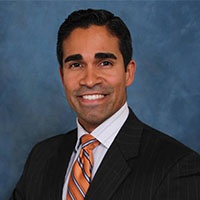 Garrison Felony Lawyers, New York
Garrison Felony Lawyers, New York
Sponsored Law Firm
-
 x
x

Click For More Info:
-
Osorio Cachaya Law Offices, PLLC
203 E Post Rd 1st Floor White Plains, NY 10601» view mapAccident & Injury, Criminal, Family, Immigration Experienced Legal Assistance!
Osorio Cachaya Law Offices, PLLC is a family-owned law office that has been offering a team approach to legal issues since 1999.Se Hablamos Espanol
800-318-9750
Sponsored Lawyers
1-4 of 4 matches
Criminal, DUI-DWI, Felony, Misdemeanor, Traffic
Angel I. Falcon is a Dutchess County based general practice catering to the legal needs of individuals and businesses in the Hudson Valley and surrounding areas.
(more)Criminal, DUI-DWI, Felony, Traffic
Kevin T. Conway is a local criminal attorney practicing in the field of criminal law. Attorney Conway have over 30 years of experience representing clients through a variety of legal issues. He is licensed in the states of New York, New Jersey, and Connecticut. Mr. Conway maintain local offices in Rockland County and Bergen County routinely appearing and handling all types of criminal cases, including Rockland and Bergen County DWI, in the Superior, County, Justice, and Borough Courts. Kevin T. Conway previously served as the county-wide DWI prosecutor, personally handling the responsibility and oversight of all DWI-related offenses, both misdemeanor and felony, as well as vehicular manslaughter and vehicular assault DWI-related cases. This background has provided him with invaluable experience to assist clients facing criminal or DWI offenses in New York, New Jersey or Connecticut. Attorney Conway regularly appears in the courts in New York, New Jersey, and Connecticut. He maintains a good professional working relationship with the prosecutors and the judges in Rockland and Bergen Counties which allows him to effectively represent your interests in court.
(more)


 Jesus Cachaya White Plains, NY
Jesus Cachaya White Plains, NY Practice AreasExpertise
Practice AreasExpertise


